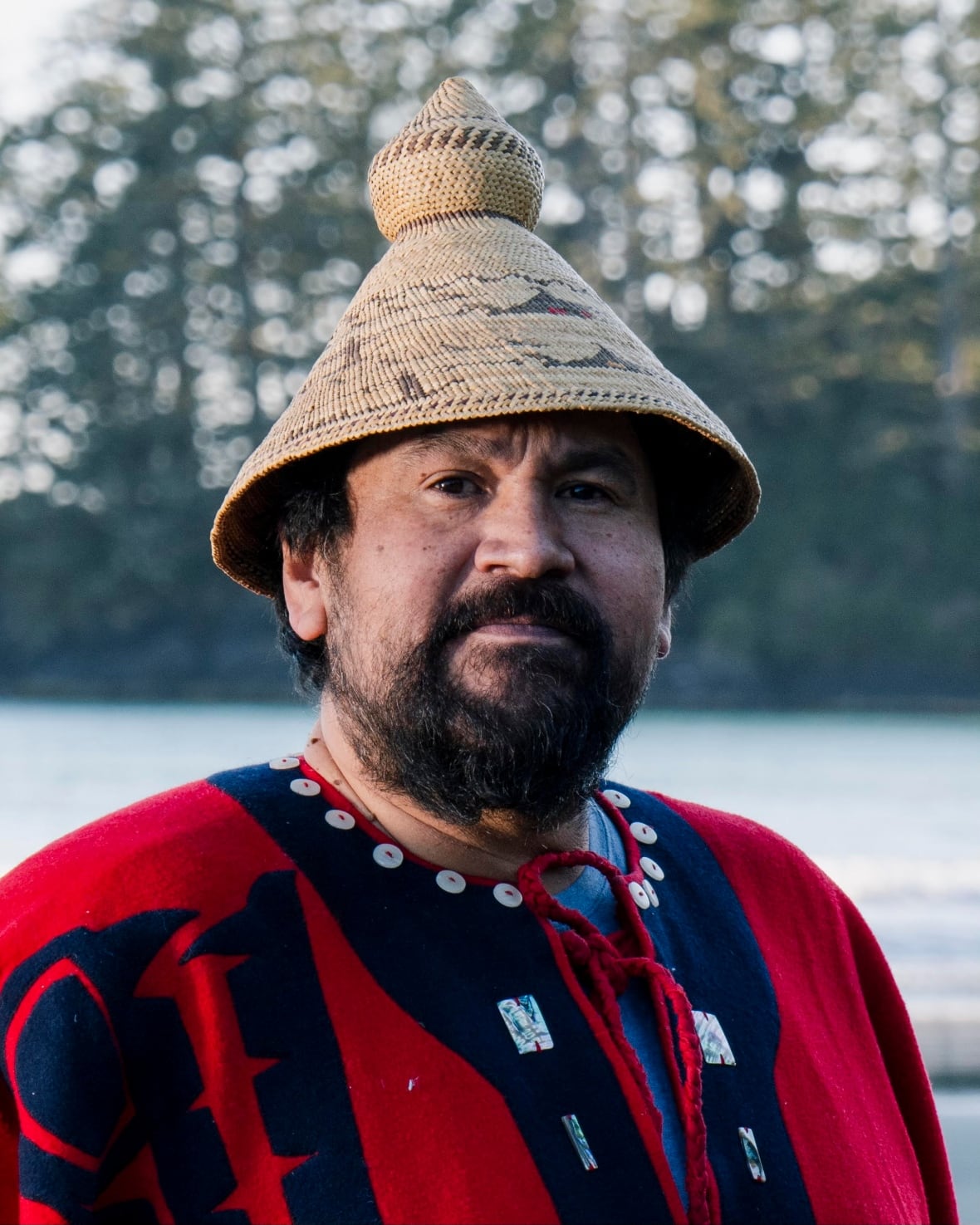Island-based hereditary chief calls for cancellation of open-net fish farm ban
A hereditary chief with the Ahousaht Nation is calling on the federal government to cancel its plan to ban open-net fish farms along the B.C. coast.
Last June, the federal fisheries minister announced the ban would take effect in June 2029. It was originally supposed to happen in 2025.
The ban is in response to calls from environmentalists and many First Nations, who say fish farms in open water risk spreading disease to wild salmon populations.
But hasheukumiss, a hereditary chief who is president of Ahousaht's economic development organization, said his nation benefits from having fish farms in their waters.
There are 12 of them in Ahousaht territory, near Tofino on the west coast of Vancouver Island. They're operated by Cermaq, a Norwegian aquaculture company.
Maaqutusiis Hahoulthee Stewardship Society (MHSS), the nation's economic development body, has a protocol agreement with Cermaq which helps guide how the company operates.

The society also gets money from the company, which it uses to invest in other projects for the nation. It also employs about 50 people from the nation.
"It would be really detrimental on many different levels if [the farms] were removed," said hasheukumiss.
He told CBC News he's also been working with Cermaq to decrease the amount of sea lice and pathogens found on the fish in their farms, by setting restrictions in the protocol.
If the company failed to lessen the number of sea lice, for example, they'd be asked to leave.
A recent statement from Cermaq, MHSS, and the Ahousaht Nation said they had used new technology to successfully reduce the number of sea lice to below thresholds set by Fisheries and Oceans Canada.
"That is a real pathway forward for what happens when a First Nations get involved with the monitoring aspect, and putting real stringent protocols in place," said hasheukumiss.
He said they've hired their own biologist to check Cermaq's results and have found they match.
He's confident that ongoing innovation and new technology can mitigate the risks to wild salmon stocks from farmed fish.
Rights infringementIf the federal government proceeds with its plan to ban all open-net fish farms on the B.C. coast, including the ones in Ahousaht territory, hasheukumiss said it will infringe on his nation's rights to look after its lands and people.
He argues it would also be a violation of the federal government's duty to consult.
But Bob (Galagame') Chamberlin, head of the First Nation Wild Salmon Alliance, disagrees.
He is against fish farms, saying the science is clear that they harm wild salmon.

He points to this year's huge return of sockeye salmon to the Fraser River — saying he thinks there are more salmon because some farms were already removed from the east side of Vancouver Island.
He said the federal government has to consider all B.C. First Nations with fishing rights when considering the ban — and he says most of them are in favour.
"I am really believing that the majority of First Nations speaking in one path is going to lead the outcome to where it needs to be," said Chamberlin.
CBC News asked Fisheries and Oceans Canada if it is still on track to phase out the farms by 2029.
In response, it sent the following statement which does not answer the question: "The Government of Canada is dedicated to supporting an innovative and thriving sustainable aquaculture sector in British Columbia in close collaboration with the Province, First Nations, and industry."
cbc.ca





